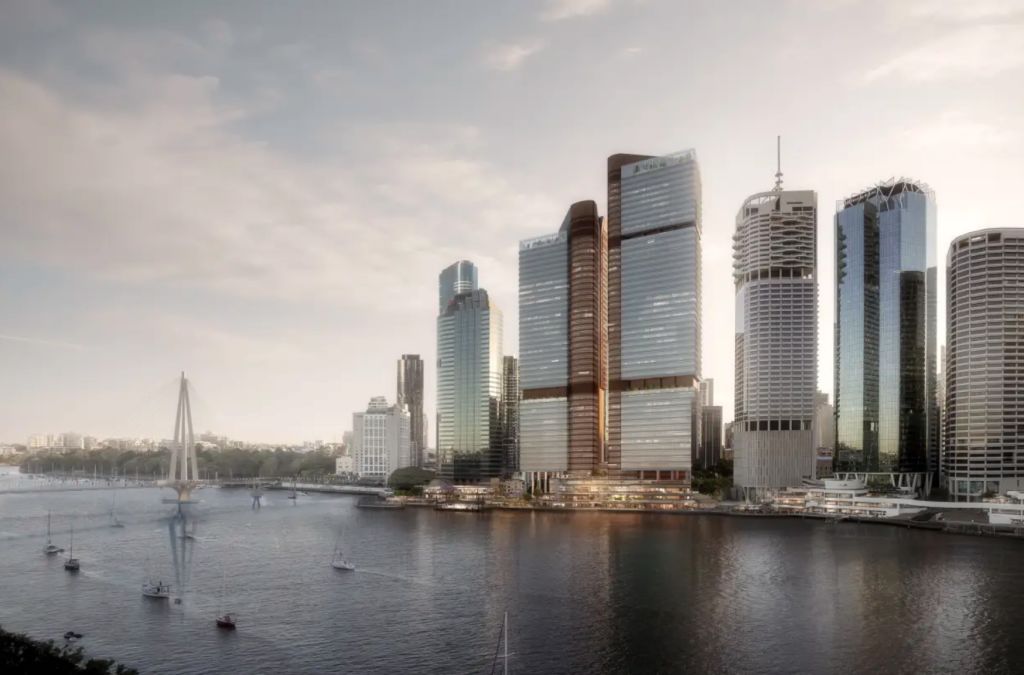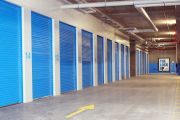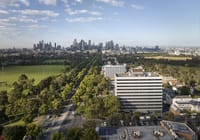
Dexus office, industrial values slip as cap rates rise
Dexus, one of the country’s largest corporate landlords, has written down the valuation of its office portfolio by 2.3 per cent as rising yields pushed down asset values in a period that analysts said was the start of a wave of weakness in commercial property assets.
ASX-listed Dexus said its industrial properties suffered a lesser 0.5 per cent decline in valuations over the six months to December, as strong rental growth offset higher capitalisation rates – or yield – in a sector that had less supply available to serve the growing demand.
As the yields of long-dated bonds – an alternative asset class to commercial property investment – rise in line with higher borrowing costs, the cap rates of these property assets also rise and valuations fall in response.
Higher discount rates – reflecting expectations of lower future cash flows from properties – also pushed valuations lower, Dexus said.
Dexus’ external revaluation of 177 of its 183 directly held assets – comprising 34 office properties and 143 industrial properties – led to a total estimated decrease of 1.9 per cent in its book values of assets for the second half of the calendar year, equating to a loss in value of about $322 million.
Dexus’ office portfolio covers 1.8 million square metres of space, Its assets include Sydney’s 1 Bligh Street and Australia Square at 264 George Street, Brisbane’s 12 Creek Street and Melbourne’s 180 Lonsdale Street.
It has been actively managing its portfolio to dispose of older assets to invest in new assets such as Atlassian Central in Sydney and the Waterfront Brisbane project.
Office rival Charter Hall earlier in the week reported a 0.5 per cent decline in valuations of its office assets, even as other asset-type valuations held up.
But this week’s “modest” declines in valuations are likely to be followed by greater falls in the coming year, UBS analysts said ahead of the Dexus announcement on Friday.
“The lack of recent conclusive transactional evidence means reported 1H23 cap rates likely do not yet fully reflect the current interest rate environment,” analysts led by Grant McCasker said in a note published on Thursday.
“Further cap rate expansion will follow in FY23 reporting, with portfolio devaluations likely less severe for A-REITs with robust income growth. At this stage in the rate cycle, we have a preference for diversified value REITs with residential exposure (ie Stockland, Mirvac) as we see resi headwinds as largely priced in.”
Separate data from commercial agency CBRE this week showed transaction volumes in office assets dropped this year, as vendors withheld properties from the market as they waited to see how pricing played out.
Dexus chief executive Darren Steinberg said the asset revaluations pointed to a growing disparity between prime assets and lower-grade secondary ones.
“We expect a continued trend of well-located quality assets performing better than secondary assets against an uncertain macroeconomic backdrop,” Mr Steinberg said.
Dexus’ announcement on Friday did not detail changes in the value of individual assets – those will only be published at the company’s half-year earnings announcement on February 14.
The company said, however, its weighted average capitalisation rate across the total portfolio of directly held assets expanded by about 16 basis points to 4.8 per cent over the six months to end-December.
A basis point is one one-hundredth of a percentage point.
The weighted average capitalisation rate of Dexus’ office portfolio grew by about14 basis points to 4.89 per cent, while the cap rate of its industrial portfolio rose by 17 basis points to 4.46 per cent.
Dexus shares were trading up 11¢, or 1.4 per cent, at $8.17 after the announcement.










